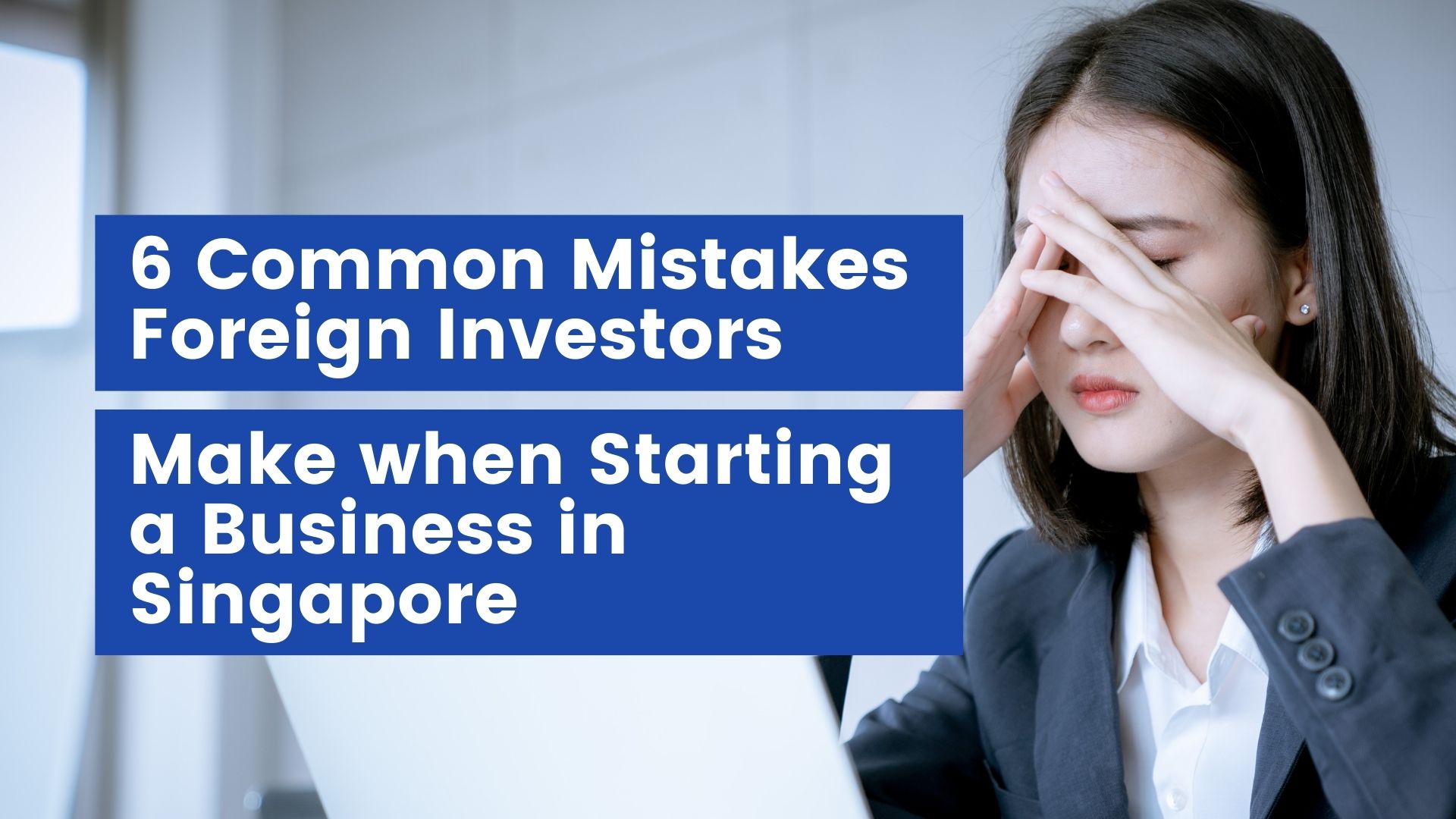Singapore is recognised globally as a prime destination for foreign investors. Its business structure is well-developed, and its tax system is favourable to business owners. The government has a strong support system for entrepreneurs and provides legal protection for intellectual property rights.
All of these conditions create an environment that is ideal for Singapore company incorporation. However, it does not guarantee that every start-up will succeed. This article highlights the common mistakes that foreign investors must avoid.
Having Little to No Market Knowledge
Four out of every five businesses fail within the first 18 months. However, it does not point to a lack of Singapore incorporation services but to a failure of many start-ups to gather enough market knowledge. Many budding entrepreneurs waste a lot of time and resources making misguided business decisions.
To minimise these costly mistakes, potential investors need to test the market and find out if there is an existing demand for the products or services they want to offer. The best way to do this is by conducting thorough research, taking advantage of in-country market reports, and reaching out to potential clients or business partners.
Having No Clear Business Goals
A good business plan starts with a clear goal. It sets the path of the company, and without it, a start-up is doomed to fail. This is especially true in Singapore, where the business environment is very competitive.
Most of the successful companies in the country have achievable goals that inspired them to succeed and, more importantly, focused all their efforts in the right direction. It includes short and long-term objectives. To come up with a clear business goal, potential investors can seek the advice of business experts in Singapore.
Having Little Understanding of Tax Compliances
While Singapore’s tax system is conducive to businesses, investors need in-depth understanding to take full advantage of various incentives. That is why some new foreign ventures struggle at first. They do not understand the ins and outs of Singapore’s tax regime and government support for company incorporation.
Case in point, some foreign investors do not realise that they qualify for tax relief on the first $100,000 in taxable income for the first three years. They end up missing out on a great opportunity offered by the government. To ensure that investors have a good grasp of Singapore’s tax compliances, they must engage the services of tax advisors in the country.
Partnering with the Wrong Distributors
Working with a local partner is a great way for a foreign investor to access the Singaporean market. However, it is important for any investor to evaluate the qualifications of a potential partner first before getting into any form of a business relationship.
Singapore has strict laws against illegal business activities and is generally successful in weeding out dishonest distributors. Still, it is best to be proactive when it comes to verifying the credentials of a potential partner. This information can be readily verified by the Accounting and Corporate Regulatory Authority or ACRA.
Not Thinking Long-Term
Singapore has many success stories where an investor purchases stocks or other assets and sells them for a large profit in a short span of time. However, this method requires a lot of skill and experience. It would be very risky for a foreign investor with limited knowledge of the local market to adopt the same business model. The best way for a new investor to survive the first critical months or years in business is to focus on long-term strategies that offer modest results but present manageable risks.
Not Asking for Help
Running a business is a very complex task that not even the most skilled investor could manage every aspect alone. To maximise the chances of success, investors must invest in business experts who can help with tax remittance, marketing, and other areas.
Conclusion
Singapore is a great place for a foreign investor to start a business, but success or failure will ultimately depend on making sound business decisions and avoiding the six common mistakes.



















No Comments